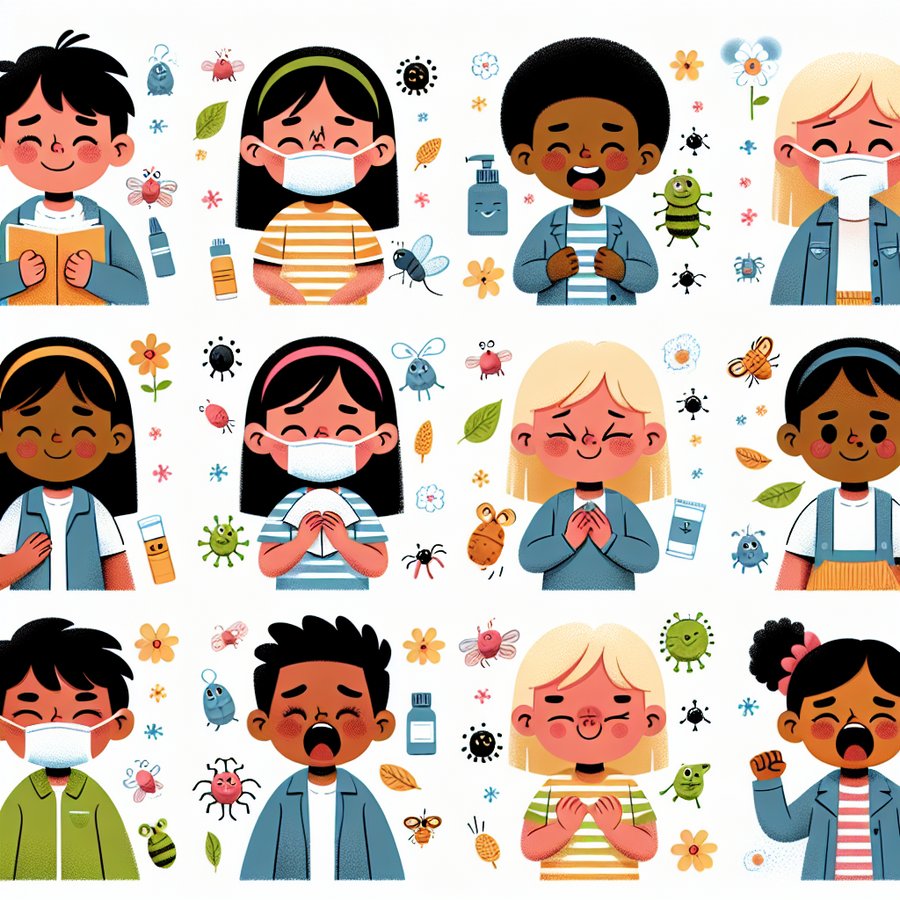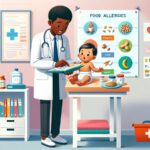Allergies in babies are a common concern for many new parents, as they navigate through the early stages of their child’s life trying to ensure their health and well-being. An allergy occurs when a baby’s immune system reacts to substances in the environment that are harmless to most people. These substances, known as allergens, can trigger symptoms that range from mild to severe. Understanding baby allergies is crucial for parents to manage and prevent potential allergic reactions effectively.
What Causes Baby Allergies?
Baby allergies are caused by a hypersensitive response from the immune system to a foreign substance. The most common allergens include certain foods, dust mites, pet dander, pollen, and insect stings. Genetics can also play a significant role, with allergies more likely to occur in babies with a family history of allergies or asthma. Understanding these causes can help parents take preventative measures to reduce their baby’s exposure to potential allergens.
It’s essential for parents to be aware of the most common food allergens which include milk, eggs, peanuts, tree nuts, soy, wheat, fish, and shellfish. Environmental factors, such as exposure to smoke or pollution, can also exacerbate allergic reactions, making it important to maintain a clean and healthy living environment for your baby.
How to Identify Allergies in Babies
Identifying allergies in babies can be challenging, as symptoms can be similar to other common illnesses. However, some telltale signs can indicate an allergic reaction. These symptoms may include hives, eczema, difficulty breathing, vomiting, diarrhea, and swelling around the mouth or other parts of the body. If you notice any of these symptoms in your baby, it’s crucial to seek medical advice to determine if an allergy is the cause.
Doctors may recommend allergy testing to identify specific allergens affecting your baby. This can be done through skin prick tests, blood tests, or elimination diets, depending on the suspected allergens and your baby’s age. Understanding the causes of your baby’s allergic reactions will enable you to manage and prevent future exposure more effectively. For more information on testing, visit this resource.
Managing and Preventing Baby Allergies
Once you’ve identified the allergens that affect your baby, the next step is managing and preventing exposure. For food allergies, this means eliminating the allergen from your baby’s diet and being vigilant about reading food labels. It’s also important to introduce new foods one at a time and watch for any adverse reactions. Creating a safe environment at home can significantly reduce the risk of reactions to environmental allergens. This includes using hypoallergenic bedding, removing carpets or rugs that can harbor dust mites, and using air purifiers to reduce indoor pollen and pet dander levels.
Educating family members and caregivers about your baby’s allergies is also crucial to ensure they understand how to avoid exposure to allergens and what to do in case of an allergic reaction. Medications, such as antihistamines or epinephrine injectors (for severe allergies), can be prescribed by your doctor to manage symptoms. Always have an action plan in place for dealing with allergic reactions, including when to administer medication and when to seek emergency medical assistance. For more tips on creating a safe environment, check this helpful guide.
Living with Baby Allergies
Living with baby allergies can be challenging, but with the right knowledge and precautions, it is manageable. By understanding the signs and symptoms of allergies, identifying the causes, and taking steps to manage and prevent exposure, you can help your baby live a happy, healthy life free from allergic reactions. Regular check-ups with an allergist or pediatrician are important to monitor your baby’s allergies and adjust their treatment plan as needed.
Remember, many children outgrow their allergies as they get older, especially food allergies. However, until then, being proactive and informed is your best defense against allergic reactions. For further information on managing baby allergies, visit our allergy guide. Together with healthcare professionals, you can ensure your baby thrives despite allergies.
For external resources and more in-depth information on baby allergies, the American Academy of Allergy, Asthma & Immunology provides valuable insights and guidance for parents.













